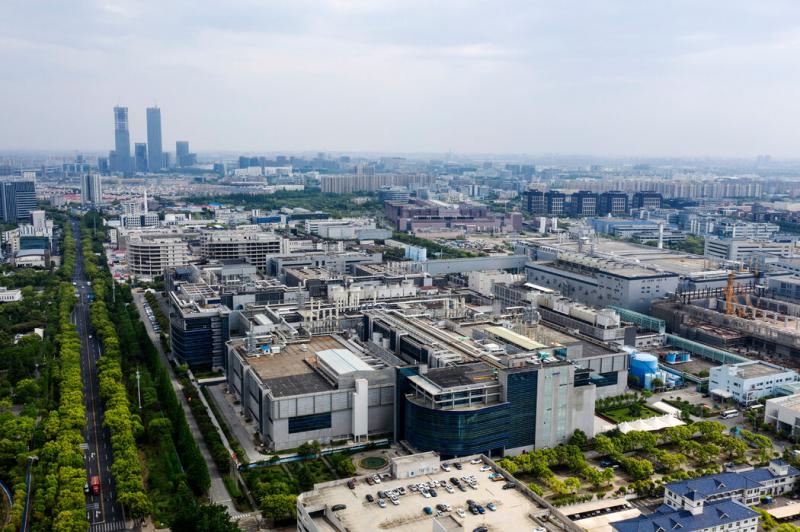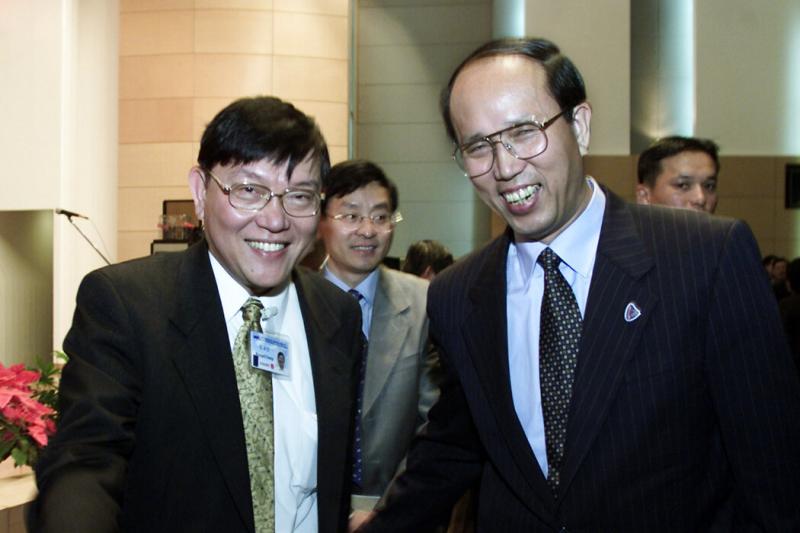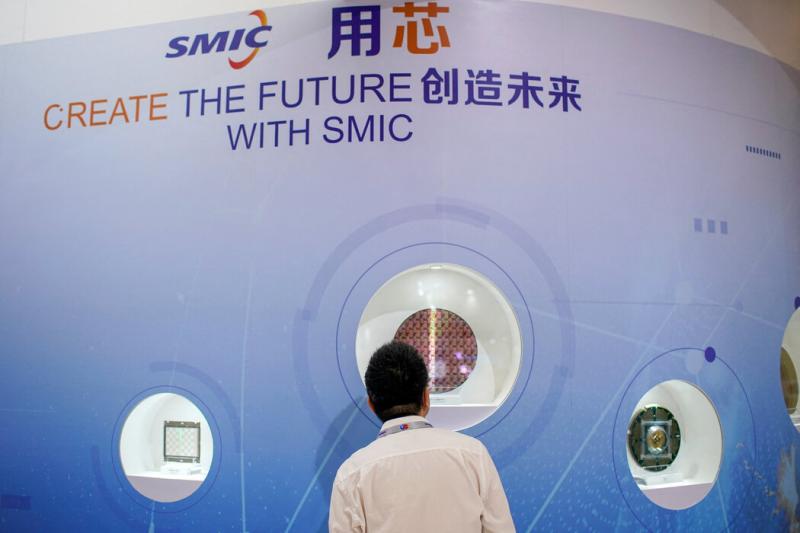
Shanghai Pudong's swamps have long been transformed into industrial parks. In a huge factory here, China's most advanced chip manufacturers have been trying to test the limits of US authority.
SMIC's ("SMIC") is producing chip's light engraving accuracy of less than one tenth of the hair.This chip integrates the computing capabilities required to promote the development of artificial intelligence and 5G networks.
Only a few companies in the world can achieve this process. SMIC has fallen into a crucial geopolitical competition. It is also because of this process.US officials say this advanced chip technology is not only vital to business operations, but also for military advantages.They have been trying to prevent this technology from falling into the hands of the Chinese and prohibit the selling the world's most advanced chips and its manufacturing machines to China.
Whether China can make technological progress and surpass the United States now depends on SMIC.SMIC is a company supported by the government, the only advanced chip manufacturer in China, and has become the de facto domestic semiconductor industry champion.SMIC produces millions of chips for other companies designing chips per month. These companies include Huawei, Huawei, and American companies such as Chinese science and technology companies that have been sanctioned by the United States.
So far, SMIC has been unable to produce and introduce advanced chips like accumulation, South Korea, and the United States.But it is developing a new type of artificial intelligence chip called Ascend 910C for Huawei, which is expected to be released this year.
The speed and advanced level of Huawei chips cannot keep up with the processor of the American chip giant Yingweida. The White House has banned Nvidia from selling cutting -edge chips to China.Experts say that SMIC may only produce a small part of the chip that Chinese companies want to buy.
But this new chip will still help China's artificial intelligence ambition.Nvidia's chip is the core of the computer cluster required for artificial intelligence. Artificial intelligence can be used to train and chat robots, develop new drugs, and help the design of hypersonic missiles.With the help of SMIC, Huawei can produce more artificial intelligence chips in the next few years, and it can weaken the impact of American technological restrictions, and may have weakened the leading position of NVIDA one day.
SMIC did not reply to the reporter's comment request.Huawei and the US Department of Commerce, which are responsible for the export control of supervision technology, refused to comment.
U.S. Minister of Commerce Gina Raymond in June this year said in an interview that the United States is in the world's leading position in the field of artificial intelligence, and restricting technology exports will help maintain this leading position."We have largely protected our most advanced technology to prevent them from flowing into China," she said.
Liu Pengyu, a spokesman for the Chinese Embassy in the United States, said that China opposes "politics and weapons of trade, scientific and technological issues."He added: "Sanctions and suppression will not prevent the development of Chinese and Chinese enterprises."
China has invested more than 1 trillion yuan in funds in the chip industry, including the 344 billion yuan investment fund announced in May this year to help promote the amazing expansion of the factory.Paul Triolo, a technical expert in the chip industry in the Olbat Stone Bridge Group, said that only the SMIC is operating in more than a dozen chip manufacturing facilities known as wafer fabOr build at least 10 wafers.
According to the financial documents submitted by SMIC, the company has nearly 19,000 employees. The capital expenditure in the first half of this year was $ 4.5 billion, exceeding its income.Among foundry chip manufacturers, SMIC's sales are second only to TSMC and South Korea Samsung.In the first half of this year, SMIC shipped nearly 4 million wafers, and there were hundreds or thousands of chips on each wafer.
Triolo said that the US export control "forced Chinese and Chinese companies to make comprehensive improvements."Although these companies are facing major obstacles, "they have made significant progress and reached the current level. Do not underestimate their ability to persist in overcome other obstacles."
The champion of the national chip industry

SMIC was founded in Pudong in 2000 in Pudong in 2000. Zhang Rujing had worked in the American chip manufacturer Dezhou instrument for decades, and was later known as the father of Chinese semiconductor.SMIC was immediately regarded as the Chinese version of TSMC, the latter is the world's largest cutting -edge chip manufacturer.
In order to attract overseas engineers, SMIC has built a residential area with international schools near the factory and has a church there.SMIC hired talents from TSMC R & D team, including Liang Mengsong, the current co -CEO of SMIC.
SMIC built a new wafer plant at an amazing speed, and has become the third largest chip foundry in the world in less than four years (that is, companies that produce chips for other companies).It provides cheap products for companies such as Qualcomm, Broadcom and Dezhou Instruments.In 2004, SMIC was listed on the Stock Exchange of New York and Hong Kong.
Over time, its largest shareholders -China Information and Communication Technology Group, Datang Holdings and China Integrated Circuit Industry Investment Fund, all state -owned enterprises.
After excessive construction, SMIC has been forced to sell several factories.In 2019, it delisted from the New York Stock Exchange and was listed the following year in Shanghai.
At that time, China's chip industry had attracted US attention as a national security issue.In 2019, the Trump administration persuaded the Dutch government to prevent the Dutch company ASML from selling the most advanced chip manufacturing machines to SMIC because the United States was worried that SMIC would help the Chinese military.
A report in 2020 describes the connection between SMIC and a large defense group and a military college in China, and the White House has implemented trade restrictions on SMIC.SMIC has denied contact with the military.The Biden government later tightened the restrictions.
But these rules are allowed to change.U.S. companies continue to sell less advanced equipment through sales channels such as non -American subsidiaries and employees through sales channels such as non -US subsidiaries and employees.
Because of these vulnerabilities, some people say that it is not surprising that SMIC has made progress.
"The fence is getting higher and higher, but we have decided to open the front door, side doors and back doors," Said Jimmy Guderic, a senior adviser of technical analysis.
Today, North American customers account for about one -sixth of SMIC.The company's huge quadrilateral silver factory building for Huawei in Shanghai Pudong is connected to other factories in the park. The chips produced by those factories are used on products sold across the United States, and they also buy machines from American companies.
According to the data from China Customs, in the first seven months of this year, the chip manufacturing equipment imported from China increased by 53%compared with the same period in 2023.
Faced with more stringent restrictions on SMIC's implementation of stricter restrictions, the opponents believe that this may damage the US economy because SMIC also cooperates with American companies.
According to people familiar with the matter, in 2022, the U.S. Congress tried to pass a law to prohibit the purchase of products containing SMIC -containing international chips, but it was complained by car manufacturers, weapons manufacturers and other companies.Core international chips are intertwined with their supply chain.
This law was finally passed after revision, and the law gave US defense suppliers for five years to cut off the connection between Chinese chip manufacturers that have something to do with the Chinese military.
"American companies will say that if you try to let SMIC's bankruptcy tomorrow, American companies will be attached to damage. This statement is accurate," said Chris Miller, the author of the Book Chip War of the chip industry, saidEssence
DemandRemove innovation

In August 2023, when Raymond Doro conducted a diplomatic visit to China, Huawei released a mobile phone equipped with a SMIC, which exceeded the US's previous technological restrictions on China.The timing of the mobile phone is considered to be a face to the United States.
Analysts and chip executives in the United States concluded that SMIC transformed less advanced equipment and used it to create more advanced chips.
TSMC and American chip giant Intel have tried the same method in the past.But semiconductor experts said that this strategy can make many chips into waste, and Intel has already discovered that it is unable to be commercial.
In response, US officials have been drafting more stringent restrictions on some SMIC.They also urged Dutch and Japanese officials to stop supplying to SMIC's most advanced wafers.This month, the Netherlands has issued new regulations that have maintained their country's export control as the same as US regulations.
It is undoubtedly hindered the development of SMIC. Some experts believe that with competitors such as TSMC and Intel continued to innovate, the United States and its allies have strengthened their control over technology exports, and China will further fall behind.The current restrictions seem to have postponed the launch of some new products in Huawei.
Senior research manager of market intelligence company IDC, Zeng Guanwei, estimates that even if China quickly develops alternatives of key chip manufacturing equipment, SMIC is likely to lag behind other international chip giants for three to five years.
Nevertheless, Dylan Patt, chief analyst of the research company Semianalysis, estimates that SMIC is likely to produce 1.2 million artificial intelligence chips for Huawei next year, which is twice this year, although it is far lower than China’sDemand or the output of American chip designers, but this shows an upward trend.
In April this year, in an electronic market in Shenzhen, Huawei product seller John Wu (Yin) said that Huawei's artificial intelligence chip supply has limited supply.However, he said that he would continue to develop confidence in Chinese companies, and competition would eventually hurt the United States.
He used a Chinese saying when describing the restrictions of the United States- "Moving his own feet", and he said.




